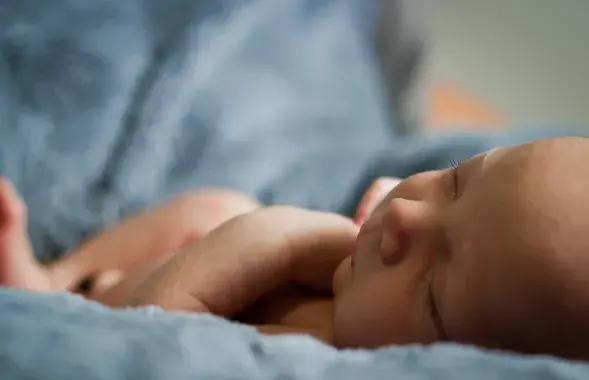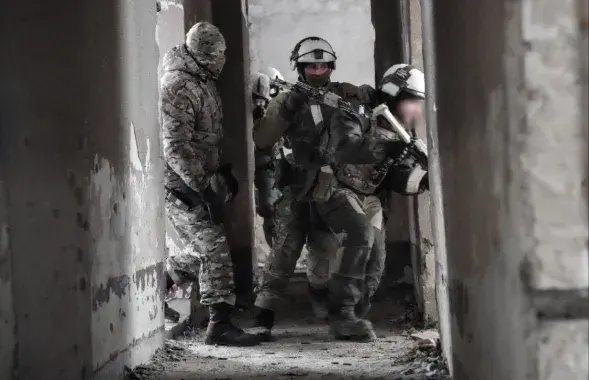Confused and lying. Behavior analyst about Lukashenka's interview with CNN

Aliaksandr Lukashenka, when talking about Sviatlana Tsikhanouskaya / screenshot from the broadcast
"His brain is so busy concocting lies that it forgets to control his speech," says a Russian lie and body language expert and behavior analyst Ilya Anishchenko while describing Aliaksandr Lukashenka's demeanor during the interview with CNN.
A conversation with Matthew Chance aired on October 2. The British journalist touched on some cutting issues, like, detaining centers that became "torture chambers" in 2020. He also offered Lukashenka the opportunity to apologize to the people of Belarus "for the human rights abuses."
The head of state himself persisted, quite harshly, in his opinion on the Belarusian protests. He claimed there was no human rights abuse and talked about his relationship with Vladimir Putin, President of Russia.
At the request of Euroradio, Ilya Anishchenko watched this interview and assessed Lukashenka's communication style, as well as his reaction to what the British journalist was saying.

Ilya Anishchenko: The most glaringly obvious thing is disgust Lukashenka's demonstrating when he talks about Sviatlana Tsikhanouskaya and says, "the female persona - I'm not going to discuss her."
We already reviewed similar emotions when we analyzed the Big Talk.
When it comes to the whole interview, I found Lukashenka either consciously lying or forced to come up with something even when he's not sure what to say on three occasions.
When the journalist offers him an opportunity to apologize to the people of Belarus, Lukashenka says that if he ever would, it would be through the Belarusian media, not CNN [0:50].
When he's uttering the words "through the Belarusian media," his head twitches slightly to the right. It means he's not going to apologize to anyone; he's telling us, "Don't hold your breath." He knows he's not issuing any apologies, even if it's through the media, and he's lying to us.
We call this kind of occurrence an emblematic slip. Usually, when a person says no, they shake their head from side to side (an emblem). A contradiction is evident here. Lukashenka attempts to control his body language to fortify his words, but he's unsuccessful. A head twitch, not unlike a data leak, reveals the truth.
Next time, it happens when Matthew Chance is talking about the detainees in Belarusian prison camps, specifically, about their testimonies of having been sexually violated. In trying to counter, Lukashenka gets tongue-tied. "Everything you just listed is a fake," [3:47] while it would be better to use "fakes" here, as in plural. After that, he starts picking his words and floundering. All of that tells us he has to think up something to cover the truth. That's it with the speech.
Now, with the body language. Note that when Lukashenka is talking about a fake, his shoulders jerk. This is, once again, an emblematic slip. When a person is not sure about something, they raise their shoulders. When a person is stating a fact, and their shoulders are moving, they're either unsure or consciously lying. I think, in this case, he knows of such instances but tries to claim it all as a fake.
He adds then, "I guarantee." It's a strong denial, but then he contradicts himself and says, basically, "If you like, we can investigate it."
So, is it fake, and the facts are made up, or do we need to investigate the matter? Lukashenka's confused. I believe, in that case, he's certainly lying.
While discussing the protesters' deaths, Lukashenka claims that "these four deaths never happened" [11:13]. The way he's moving his lips and swallowing tells us he's severely stressed. It bears examining why he's so unsure if he's stating a fact.
He lacks a headshake to fortify his words when he's saying "never happened." Usually, he does that but not here. He's looking straight ahead, and his body is tense. This is the second tell he's lying.
It is noteworthy how he reacts to the question about the victims, saying that's the first he's heard of it and, at the same time, claiming with confidence that it never happened.
Matthew Chance is well prepared for the interview, but it's evident he's perturbed. Even more so than Lukashenka himself. Like, when the latter starts pointing fingers and talking about the US.
Chance is rubbing his hands, pursing his lips, and hesitating. Throughout the interview, when similar situations occur, he looks awkward and very stressed out.
Russian antidepressant
Ilya Anishchenko, the behavior analyst, has been closely following the changes to Lukashenka's demeanor since the protests in Belarus. According to him, the only thing that calms down the Belarusian ruler these days is meetings with his Russian colleague, Vladimir Putin.
"Russian government's support is the only thing keeping Lukashenka from panicking. A year ago, he was feeling worse, but now, as the protest's tide has died down, he is calmer. Nonetheless, mentally, he's not more stable than he was before the 2020 elections. His head is messed up."

















